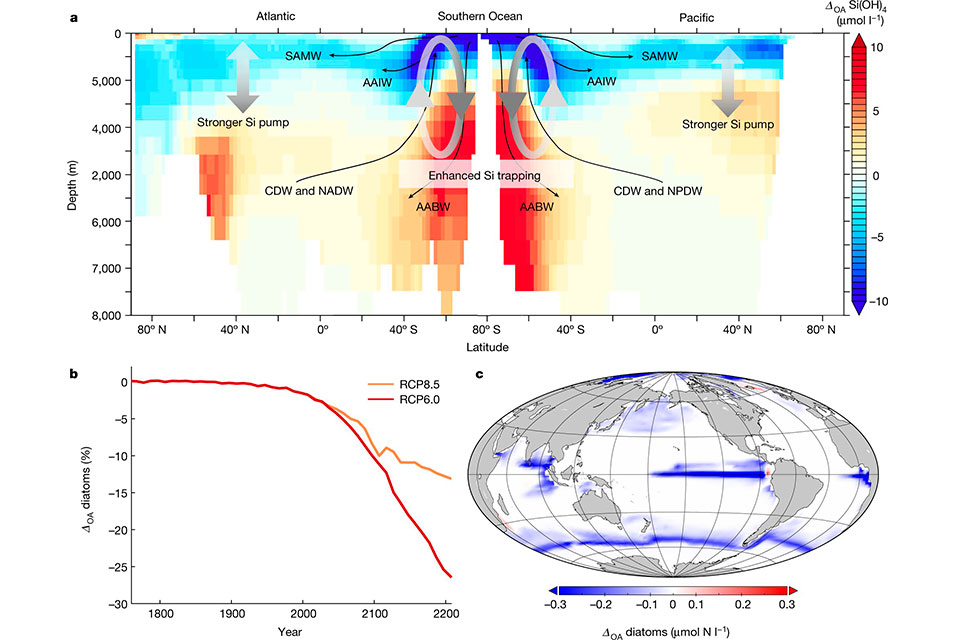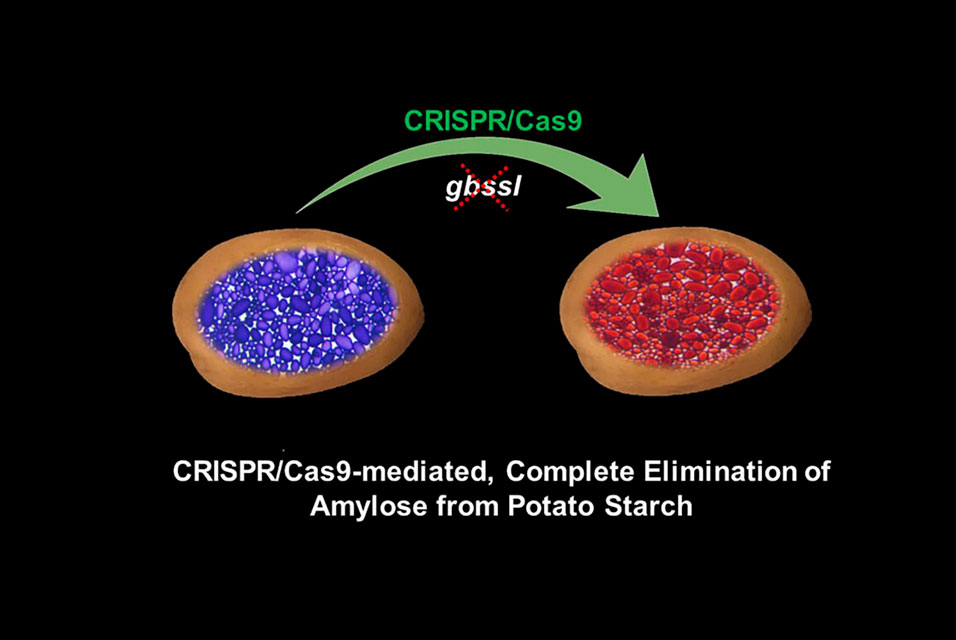KIEL.- While calcifying organisms like oysters and corals have difficulty forming their shells and skeletons in more acidic seawater, diatoms have been considered less susceptible to the effects of ocean acidification—a chemical change triggered by the uptake of carbon dioxide (CO2). The globally widespread tiny diatoms use silica, a compound of silicon, oxygen and hydrogen, as a building material for their shells. That diatoms are nevertheless under threat has now been demonstrated for the first time by researchers from
GEOMAR Helmholtz Centre for Ocean Research Kiel, the Institute of Geological and Nuclear Sciences Limited New Zealand and the University of Tasmania in a study published in Nature. For the study, researchers linked an overarching analysis of various data sources with Earth system modeling. The findings provide a new assessment of the global impact of ocean acidification.
As a result of ocean acidification, the silicon shells of diatoms dissolve more slowly. This is not an advantage—it causes diatoms to sink into deeper water layers, before they chemically dissolve and are converted back into silica. Consequently, this nutrient is more efficiently exported to the deep ocean and thus becomes scarcer in the light-flooded surface layer, where it is needed to form new shells. This causes a decline in diatoms, according to the scientists in their recent publication. Diatoms contribute 40 percent of the production of plant biomass in the ocean and are the basis of many marine food webs. They are also the main driver of the biological carbon pump that transports CO2 into the deep ocean for long-term storage.
Dr. Jan Taucher, marine biologist at GEOMAR and first author of the study, says, "With an overarching analysis of field experiments and observational data, we wanted to find out how ocean acidification affects diatoms on a global scale. Our current understanding of ecological effects of ocean change is largely based on small-scale experiments; that is, from a particular place at a particular time. These findings can be deceptive if the complexity of the Earth system is not taken into account. Our study uses diatoms as an example to show how small-scale effects can lead to ocean-wide changes with unforeseen and far-reaching consequences for marine ecosystems and matter cycles. Since diatoms are one of the most important plankton groups in the ocean, their decline could lead to a significant shift in the marine food web or even a change for the ocean as a carbon sink."
The meta-analysis examined data from five mesocosm studies from 2010 to 2014, from different ocean regions ranging from Arctic to subtropical waters. Mesocosms are a type of large-volume, oversized test tube in the ocean with a capacity of tens of thousands of liters, in which changes in environmental conditions can be studied in a closed but otherwise natural ecosystem. For this purpose, the water enclosed in the mesocosms was enriched in carbon dioxide to correspond to future scenarios with moderate to high increases in atmospheric CO2 levels. For the present study, the chemical composition of organic material from sediment traps was evaluated as it sank through the water contained in the experimental containers over the course of several weeks of experiments. Combined with measurements from the water column, an accurate picture of biogeochemical processes within the ecosystem emerged.
The findings obtained from the mesocosm studies could be confirmed using global observational data from the open ocean. They show—in line with the results of the meta-analysis—a lower dissolution of the silicon shells at higher seawater acidity. With the resulting data sets, simulations were performed in an Earth system model to assess the ocean-wide consequences of the observed trends.
"Already by the end of this century, we expect a loss of up to ten percent of diatoms. That's immense when you consider how important they are to life in the ocean and to the climate system," Dr. Taucher continued. "However, it is important to think beyond 2100. Climate change will not stop abruptly, and global effects in particular take some time to become clearly visible. Depending on the amount of emissions, our model in the study predicts a loss of up to 27 percent silica in surface waters and an ocean-wide decline in diatoms of up to 26 percent by the year 2200—more than a quarter of the current population."
This finding of the study is in sharp contrast to the previous state of ocean research, which sees calcifying organisms as losers and diatoms being less affected by ocean acidification. Professor Ulf Riebesell, marine biologist at GEOMAR and head of the mesocosm experiments, adds, "This study once again highlights the complexity of the Earth system and the associated difficulty in predicting the consequences of man-made climate change in its entirety. Surprises of this kind remind us again and again of the incalculable risks we run if we do not counteract climate change swiftly and decisively."










